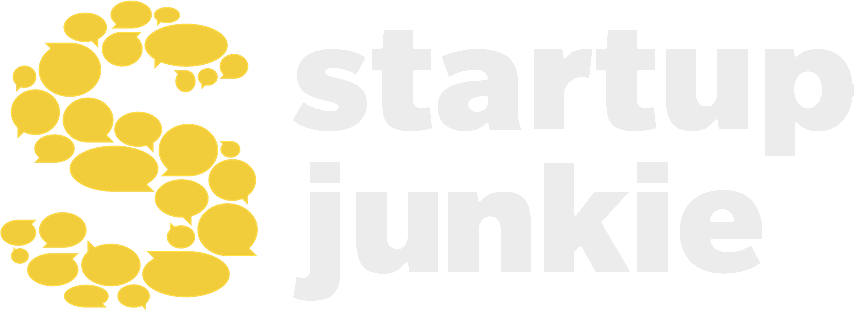You’ve likely completed your Lean Canvas. You’ve read Ash Maurya’s Running Lean. You’ve Talked to Humans. Now is the time to put your plans into action and turn planning into doing. But where do you start? You may feel like you need a website, a marketing plan, a sales strategy, a data analyst, etc. But, are you sure you want to spend your seed capital on new software and personnel? Before you spend any money, remember the silver lining: we are in the digital age. There are tons of free tools created by savvy software developers that have laid the groundwork for you to bootstrap your startup. These tools can do everything from convert leads into customers, schedule your meetings for you, and make it easy to manage projects in the pipeline. And you don’t have to spend a penny to get started. Many of these tools have paid versions with additional features that you can use as your company pivots; but how can you pivot if you never start? Now is the time. Try your hand at some of these tools and turn your planning into doing.
1. Hootsuite: Do you ever feel bogged down by the constant need to update your followers on Facebook, Twitter, LinkedIn and Instagram? Social media marketing is crucial for early-stage companies to get the word out about their products and services, and Hootsuite makes it easy to manage all of your social platforms in one place. I once had an entrepreneur share an anecdote with me that a customer shared with her: When the business owner asked the non-regular customer why she didn’t come to her events more often, the customer noted that she can’t come to events if she doesn’t know that they’re happening. So, don’t let your product or service fall to the wayside because your potential customers don’t know it exists. There’s a difference between the “Trough of Sorrow” (the period of time after launching your company and before finding product market fit), and simply not getting the word out about your company. Customers can’t buy something they’ve never heard of.
2. Calendly: Meetings are important. They’re where you can tell your story; convert leads into sales; meet with potential customers; etc. But do you feel like you spend hours every week going back and forth with people in pursuit of a time that works on everyone’s calendars? With a Calendly account, you can create a personalized link to your calendar, which lets invitees go to a calendar and pick a date and time that you’ve pre-determined works for you. Then, the meeting gets automatically added to everyone’s calendars. And, it sends invitees a reminder before the meeting. To learn more, schedule a meeting with me here: https://calendly.com/kimlane/30/07-24-2018.
3. HubSpot: Want to attract more visitors to your website, track leads and close customers? HubSpot is an inbound marketing and sales platform. Its free customer relationship management (CRM) software makes it easy to build relationships with potential customers, automate tasks and organize your sales pipeline. HubSpot also has a number of paid features to assist with lead generation, email tracking and more. The CRM is a great place to get started, and is 100% free.
4. Asana: Do you ever feel like your to-do list is hard to manage, or you need a helping hand with your company’s project management strategy? You are not alone. When growing your company, it’s paramount that the quality of your offerings doesn’t go down with the quantity of demand. But, managing multiple projects and a growing team is no small feat. Software like Asana makes it easy to coordinate all of the work in the pipeline, and creates a place for teams to work together more easily. Asana was founded by Dustin Moskovitz (co-founder of Facebook), and Justin Rosenstein (previously an engineer at both Google and Facebook); both of whom worked on improving employee productivity at Facebook and know a thing or two about project management. (For anyone who is extra-interested in project management and productivity, this Freakonomics podcast delves into the story behind Asana, as well as different project management techniques and the theory behind the “planning fallacy”: “Here’s Why All Your Projects Are Always Late — And What To Do About It”.)
5. MailChimp: Email marketing is a great way to stay connected to your customers, keep your customers informed and convert prospects into customers. MailChimp is an email marketing tool that has a free plan (up to 2,000 subscribers). Through its marketing automation functionality, you can program MailChimp to welcome new subscribers, email people who have abandoned their online shopping carts and reach out to lapsed customers — automatically. And, MailChimp makes it easy to A/B test different versions of an email campaign to see what works best. It also integrates with Facebook and Twitter so your social followers can be easily informed of your company’s big updates. And, you can create segmented lists to help you market to different types of customers. If you haven’t kicked off your email marketing, now is the time!
6. Canva: Want to create branding and collateral materials that put you ahead of your competition, but don’t have a graphic designer? No worries. Canva makes it easy to create eye-catching presentations, social media posts, letterhead, infographics — even new logos. Its drag-and-drop functionality makes it extremely user friendly for even the least experienced designers.
7. Google Analytics: Ever wondered about the ROI of that Facebook or Twitter ad, or whether anyone looked at that new blog post on your website? Google Analytics is a must-have for any data-driven founder. It is a data management platform that lets you track website traffic, optimize the user experience and better understand your customers. Watch your website traffic in real-time, learn the demographics of your users and get a better understanding of your traffic acquisition and more with this free tool.
8. Eventbrite: Have you ever thought about hosting an event to showcase your product or service? Eventbrite makes it easy to collect registrations, sell tickets and gather information on your attendees. Think about creating an unforgettable experience for your potential customers, rather than just trying to sell them something.
9. Wix: When you’re creating your company’s website, you can easily spend thousands of dollars to get the right look and functionality. But before you spend a penny, try to create your own website using Wix. The drag-and-drop interface makes it easy to create a professional-looking and eye-catching website with a few clicks on the trackpad — coding knowledge is not required. Wix offers a great deal of functionality in its free version, and gives you the keys to engineer your own site. It’s worth a try before you spend your startup capital on an expensive site. Pro tip: Install Google Analytics in the backend of your site so you can test the site’s functionality before you spend money tweaking the design.
10. Typeform: It’s important to listen to your customers, and whether you’re conducting a survey, getting customer feedback or even creating a job application, it’s critical that your surveys are simple and user-friendly to create as many conversions as possible. With Typeform, you can create customer feedback forms, quizzes, contact forms and more — you can even create an online store with a few customizations in a template. You can also easily embed the forms into your website, making it easy to collect data while keeping your audience engaged. Start your improved data collection journey today!
These free tools make it easy to get started, whether you have a background in digital marketing, web design, data analytics or not. And, once you get your accounts up and running, many of these platforms can be easily integrated with each other through another free software called Zapier, which connects and automates your web apps automatically. (Interesting fact for all the startup junkies out there: Zapier originated out of a Startup Weekend!) The software makes it easy to automate your workflow so you can spend more time developing your business.
On the note of free services, the Startup Junkie and Conductor teams offer one-on-one consulting, workshops and events to entrepreneurs in every industry at no cost, and we won’t ever ask you to upgrade to a paid account. Innovators, makers and tinkerers of all ages are also invited to come to the Makerspace to prototype an idea or create a project on the 3D printers, free of charge. Whatever your venture is, Startup Junkie and Conductor should be part of your toolkit to get started and become sustainable. That’s what we’re here for!
Now, put your plans into action and get your business off the ground! If you have any questions, we’re here to help.
Kim Lane
Kim Lane strives to reduce barriers to entry for entrepreneurs, makers and innovators. She serves as the Chief Executive Officer of the Conductor (www.ARConductor.org), an initiative that provides entrepreneurial support through consulting, mentorship, access to capital, and maker training and rapid prototyping in a free-of-charge Makerspace. She is the founder of Kim Lane Ltd. Co., where she provides thought leadership as a consultant for Facebook, Inc., and serves as a consultant for the Kauffman Foundation, managing all of the 1 Million Cups chapters in New Mexico, Oklahoma, Texas, Louisiana, Arkansas and Puerto Rico. She advocates for innovation and entrepreneurship around the world, and served as a US Delegate to the Global Entrepreneurship Congress in Istanbul, Turkey in 2018; and Johannesburg, South Africa in 2017. Additionally, she serves as a Startup Huddle Ambassador for the Global Entrepreneurship Network, mentoring communities around the world on startup ecosystem building. She founded Global Entrepreneurship Week AR and Startup Grind AR.


